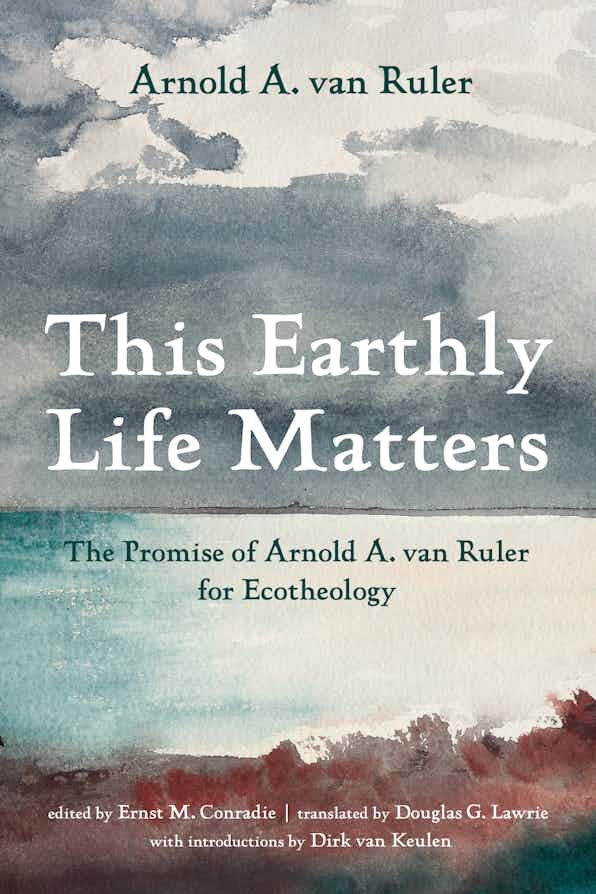My "Kuyperania 2022" has been published in Koers
https://doi.org/10.19108/KOERS.88.1.2554
Articles and books discussed include:
Beck, Michael and Falconer, Robert 2022. Toward a Substructural Cartography of Reformed Cultural Engagement: Key Areas in Confessional Reformed and Covenantal Thought. The South African Baptist Journal of Theology (2022):153-181.
Bishop, Steve 2022a. Abraham Kuyper’s Critics. Tydskrif vir Christelike Wetenskap/Journal for Christian Scholarship 58(3&4), 57 - 93. Retrieved from https://pubs.ufs.ac.za/index.php/tcw/article/view/785.
Bishop, Steve 2022b. Abraham Kuyper and evolution. Koers - Bulletin for Christian Scholarship 87(1) https://doi.org/10.19108/KOERS.87.1.2510.
Harefa, Surya 2022. “The State of Neo-Calvinism in Japan”.
Online: https://thelaymenslounge.com/the-state-of-neo-calvinism-japan/
Intan, B.F. 2022, Kuyper’s Sphere Sovereignty and the Restriction on Building Worship Places in Indonesia. HTS Teologiese Studies/ Theological Studies 78(1), a7309. https://doi.org/10.4102/hts. v78i1.7309.
Joustra J.R. and Joustra R.J. 2022 Calvinism for a Secular Age: A Twenty-First-Century Reading of Abraham Kuyper’s Stone Lectures. Downers Grove: IVP.
Kristanto, David 2022. Sovereignty of God and Religious Tolerance: A Kuyperian Perspective. Advances in Social Science, Education and Humanities Research 669:124-127. https://doi.org/10.2991/ assehr.k.220702.029.
Kuyper, Abraham 2022. On Charity and Justice. Abraham Kuyper Collected Works in Public Theology. Bellingham, WA: Lexham Press.
Li, Jin (李晋) 2022. Meaning, Objectivity and Universality: Bavinck and Pannenberg on History and Revelation. Journal of Chinese Theology 8(2): 220–249. https://doi.org/10.1163/27726606-20220011.
McIlhenny, Ryan 2022. Contact and Conflict: Integral Experience in Classical Chinese and Reformational Philosophies. Journal of Chinese Theology 8(2): 186–219. https://doi.org/10.1163/27726606-20220012.
Pass, Bruce 2022. Review of Common Grace by Abraham Kuyper. Journal of Reformed Theology 16(1- 2):164-165. https://brill.com/view/journals/jrt/16/1-2/article-p164_16.xml
Salurante, Tony, Kristanto, David, Malik, Malik, Bora, Lewi Nataniel, and Nelly, Nelly 2022. A Virtual Sacred Space Some Theological Considerations. Advances in Social Science, Education and Humanities Research 645:144-148. https://doi.org/10.2991/assehr.k.220207.023.
Schilder, Klaas 2022. Schilder Reader: The Essential Theological Writing. G. Harinck, M. de Jong, and R. Mouw (ed.). Bellingham, WA: Lexham Press.
Sidharta, Leonard (戴永富) 2022. How to Make Athens Closer to Jerusalem: Construing a Neo-Calvinist Model of the Relationship between Philosophy and Theology. Journal of Chinese Theology 8(2): 135– 162. https://brill.com/view/journals/jct/8/2/article-p135_2.xml
Tseng, Shao Kai (曾劭愷) 2022. Editorial. Journal of Chinese Theology 8(2): 129–134. https://brill.com/view/ journals/jct/8/2/article-p129_1.xml
Un, A. S. 2022. Ideological Uniformity and Political Integralism in Europe and Indonesia: A Kuyperian Critique. Philosophia Reformata 87(2), 129-150. https://doi.org/10.1163/23528230-bja10049.
Vásárhelyi Bálint Márk 2022. Common Grace in Abraham Kuyper’s Lectures on Calvinism. British Reformed Journal 71: 14-24.
Wisse, Maarten 2022. Holy Supper: Retrieving Abraham Kuyper. In Reinventing Christian Doctrine: Retrieving the Law-Gospel Distinction. London: T&T Clark, 2022. 165–184. https://www.bloomsburycollections. com/book/reinventing-christian-doctrine-retrieving-the-law-gospel-distinction/ch8-holy-supper- retrieving-abraham-kuyper
Xu, Ximian 2022. How to Make Sino-Reformed Theology Possible? Retrieving Abraham Kuyper’s Proto-Reformed Contextual Theology. Journal of Chinese Theology 8(2): 163–185. https://doi. org/10.1163/27726606-20220010.




